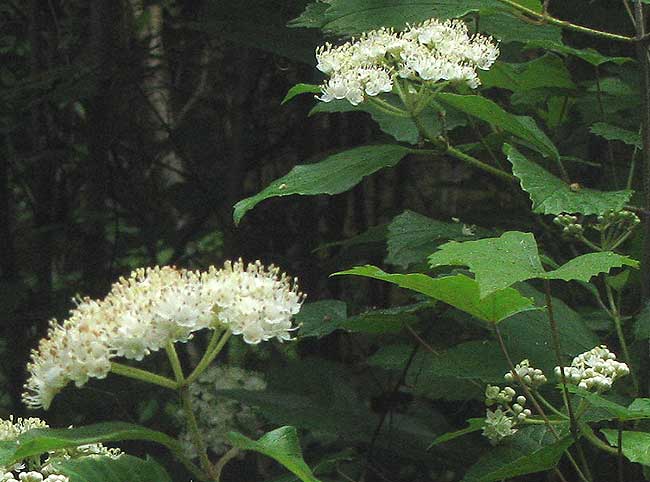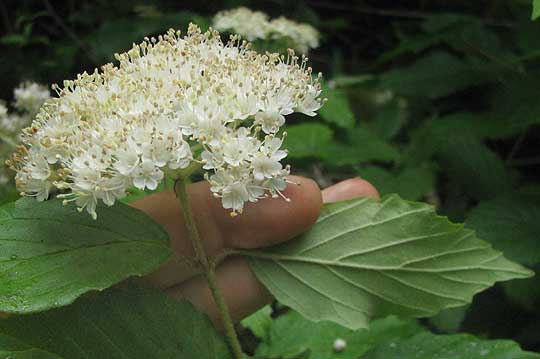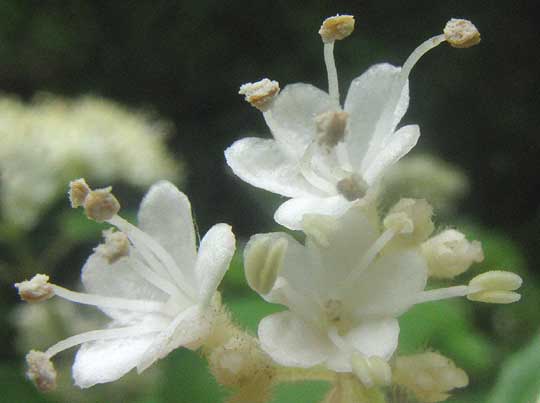Excerpts from Jim Conrad's
Naturalist Newsletter

from the May 20, 2012 Newsletter issued from the woods of the Loess Hill Region a few miles east of Natchez, Mississippi, USA
SOUTHERN TOOTHED VIBURNUM FLOWERING
Down in the moist, shadowy bottom of a local bayou there's yet another small tree attracting pollinators by clustering small, brilliantly white flowers into dense, large clusters that show up very well in the somber, shadowy greenness, as shown above.
Notice how the small flowers cluster into subgroups with each subgroup arising from its own stiff stem. Another shot showing a leaf's underside with its prominent, branching secondary veins extending into the tips of leaf-margin teeth is below:

In that picture also note that the leaves are opposite, or two to a stem node, which helps distinguish this group of plants from the majority of other bush and tree types, which have alternate leaves, or only one leaf arising per stem node. A close-up of three individual flowers is shown below:

Each of those flowers consists of only a white corolla and five white male stamens, but there are no female parts. In this species, flowers at the edge of the cluster are all male; a few flowers with female parts are found inside the cluster.
This is the Southern Toothed Viburnum, VIBURNUM SCABRELLUM. It's found from southeastern Georgia and Florida west to eastern Texas. Earlier this species was considered to be a variety of Viburnum dentatum, known as Arrow-wood, and in older publications may be listed as that. Traditionally, viburnums known as Arrow-wood were used medicinally, decoctions of them being taken by women to prevent conception. Poultices of the plant have been applied to the swollen legs of women after giving birth.
Lots of viburnum species exist, and in my days viburnums were classified as members of the Honeysuckle Family, the Caprifoliaceae, but genetic sequencing now has many experts shifting them to the newly formed Adoxaceae, along with elderberries. This new family lies near the Dogwood Family, and that's not surprising since during my years in the field more than once I've confused viburnums with dogwoods. Not only their leaves and flowers but also their fruits can be very similar. You might be interested in comparing our current Arrow-wood pictures with those of the Swamp Dogwood we looked at just two weeks ago, at http://www.backyardnature.net/n/w/swampdog.htm.